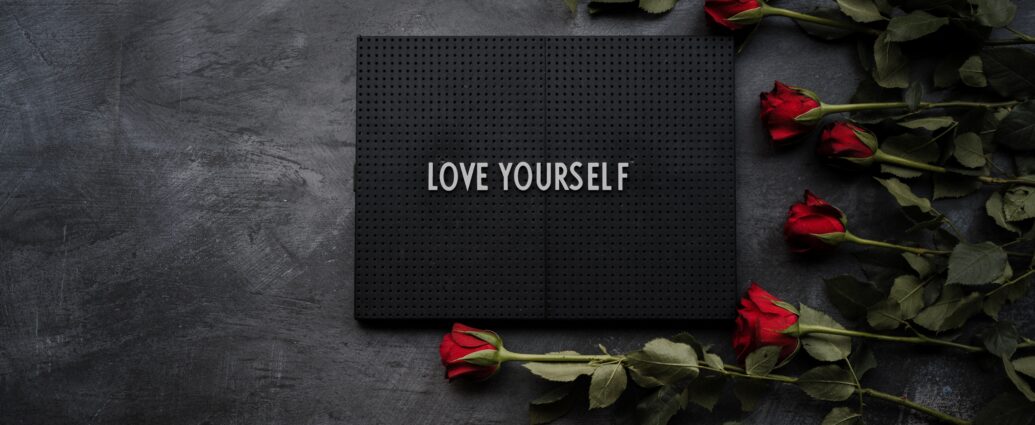Cara-Louise Scott
Trigger warning: this article contains discussions of body image and eating disorders.
It’s 2022, and social media’s influence is as prominent as ever, with celebrities telling us to love our bodies, whilst TikTok stars show us their weight loss journeys in 30 second videos. More and more celebrities are vocally joining the body positivity movement, and whilst some may argue that this is a step in the right direction, I want to shine a light on why some forms of body positivity might be harmful too.
Many celebrities are posting body positive images on social media, and whilst it can seem like they’re a positive influence, these trends can also be problematic. Smaller sized celebrities monopolising the limelight in the body-positivity movement can have two hugely differing effects. Firstly, for some young people, it may indeed help them to love their bodies more, knowing that even celebrities have stretch marks and cellulite. But for others, who may be bigger than their favourite celebrities, it can just feed into body insecurity.
The Origins of Body Positivity
“Body positivity aims to promote acceptance of diverse body types and sizes.”
Body positivity itself is rooted in activism, specifically fat activism that began in the late 1960s and- importantly- the work of women of colour. One of the things these activists protested against was discrimination in the fashion and beauty industries that profited from making their communities feel inadequate. The body positivity movement is now largely driven by social media, and celebrities publicly challenging societal beauty standards.
Body positivity aims to promote acceptance of diverse body types and sizes. Its effects are often alleged to be positive, with studies showing that women exposed to social media accounts about body positivity have greater body satisfaction and emotional wellbeing.
Lizzo
Important critiques have however also been levied towards the movement.
Singer Lizzo, who is extremely well known for her body positivity posts and songs, has spoken out about the movement has become “co-opted by all bodies” and about celebrating “medium and small girls and people who occasionally get rolls”.

In a powerful statement, Lizzo asked people to “please use the body positive movement to empower yourself. But we need to protect and uplift the bodies it was created for and by”. She highlighted that the movement had been created by “big women, big brown and Black women, queer women”, but that they’re still getting shamed and “no one cares anymore because it’s like ‘body positivity is for everybody'”.
“We cannot support body positivity for certain sizes whilst discriminating against others.”
Responding to the barrage of critiques faced by fat women, the singer concluded that “Our health is none of your…business. All we ask is that you keep the same energy with these medium girls that you praise”.
Lizzo highlights a repeated problem in the body positivity movement: while it has had some positive effect, there are also repeated trends of smaller and more medium sized celebrities dominating the movement, whilst bigger women are shamed and face unsolicited comments regarding their health. We cannot support body positivity for certain sizes whilst discriminating against others.
Performative Activism
Whilst all body positivity should be praised, there needs to be room for all bodies, especially those bodies that started the movement. Young people need to see a diverse range of bodies, instead of just those which continue to reproduce typical beauty norms.
“These celebrities may care more about being perceived as ‘body positive’ than they do for the cause itself”
Furthermore, many of these posts by celebrities can be argued to be a part of ‘performative activism’, defined as “supporting a cause or issue to garner attention, support or monetization from others rather than actually caring about making a difference in the cause”. These celebrities may care more about being perceived as “body positive” than they do for the cause itself and what their posts are achieving.
Productive Celebrity Body Positivity

However, it is still important for medium sized women to share their body positivity, as long as it is not promoting toxicity or shaming big women. Demi Lovato, for example, who has suffered from eating disorders herself, has shared photos of her cellulite and stretch marks. This is how body positivity should be- sharing vulnerable and insightful moments and words, not simply posting a less than perfect photo for ‘likes’.
“[body positivity is] not about how much you weigh…it’s about being kind to yourself and loving yourself.”
Similarly, Rebel Wilson, who is known for her body positivity, recently lost weight and spoke up about what this meant for her. She commented that “[body positivity is] not about how much you weigh…it’s about being kind to yourself and loving yourself.”
She also explained that, before her weight loss, she didn’t have any health issues, but she knew she was emotionally eating and wanted to improve this. What I appreciate most about Rebel Wilson is the fact that she admitted to loving herself bigger. Her words are a testament to the fact that you can still channel body positivity no matter your size, and that you do not need to carry shame or hatred towards yourself.
These are insightful examples of how body positivity can be just that: ‘positive’, as long as we are mindful that we are not simply encouraging young women to lose weight.
The Effect of Social Media
“62% of 15 to 16-year-olds felt that social media had elevated expectations over their personal appearance”
However, it remains worth noting the effects social media actually has on young people. The young charity YMCA spoke to more than 1000 young people aged between 11 and 16 and found that 62% of 15 to 16-year-olds felt that social media increased the already high expectations they had for themselves concerning their appearance. With an estimated 1.25 million people in the UK having an eating disorder, we must be more aware of how celebrities posting their bodies on social media can influence those viewing this content.
To conclude, this piece isn’t to say that I am against body positivity – I am very much for it. I have simply sought to shed some light on the ways celebrities need to be more inclusive to all sizes and how social media, no matter how ‘positive’, can still negatively influence young women’s body image.
Featured image courtesy of Annie Spratt on Unsplash. No changes were made to this image. Image licence found here.

